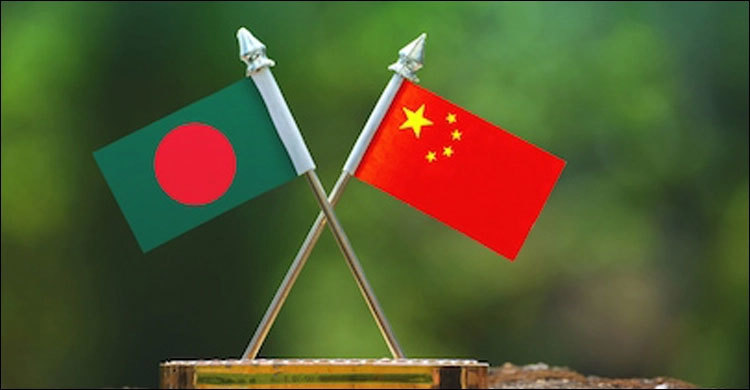Bangladesh will seek fresh loans amounting to $20 billion during Prime Minister Sheikh Hasina’s upcoming visit to China, which Beijing hopes would be a “game changer” in the bilateral relationship.
Of the sum, $15 billion would be for infrastructure projects and $5 billion — which would be disbursed in yuan — would be to facilitate payments for imports from China, according to the officials involved in preparing the proposals.
“We have reached consensus on several aspects but are yet to finalise it — we will finalise it by July 7,” one of the officials told The Daily Star yesterday.
The foreign ministry yesterday held an inter-ministerial meeting for finalising the joint statement that will be adopted by Bangladesh and China during the PM’s visit from July 8 to July 11.
The visit comes just two weeks after Hasina’s first state visit to India after she was sworn in as the PM for a fourth straight term.
The trip to China, Bangladesh’s largest trading partner, is viewed as a balancing act by Hasina, who hopes to be in the good books of two competing regional powers.
Bangladesh will seek Chinese support for the Southern Integrated Development Initiative (SIDI) centring the Payra Port in Patuakhali, according to finance ministry officials.
This will be an integrated development plan for the southern region involving projects on transport and communication, ICT, power and energy, logistics and a special economic zone.
SIDI will see the establishment of an electric vehicle plant, a hi-tech park and a logistic hub at a strategic location, said a finance ministry official.Japan is supporting the Moheshkhali-Matarbari Integrated Infrastructure Development Initiative (MIDI) and the BIG-B Initiative (The Bay of Bengal Industrial Growth Belt).
“Similarly, Dhaka wants Beijing to support SIDI,” said a foreign ministry official.
Bangladesh earlier sought a loan in Yuan worth $5 billion to facilitate importers to make payments for goods and services procured from China amid Bangladesh’s strained dollar stockpile.
Bilateral trade between Bangladesh and China stands at $23 billion, with imports by Bangladesh accounting for almost the entire sum.
A team of Chinese Exim Bank yesterday met with officials of the Economic Relations Division, the finance ministry wing that negotiates foreign loans, to discuss the terms and conditions for the loan, The Daily Star has learnt from officials informed with the proceedings.
The other projects for which Dhaka will be seeking loans from China include: the Dhaka Mass Rapid Transit Development Project (Line 2), the Bhanga-Kuakata rail line, bridge over the Kocha river at Pirojpur, the renovation of Dhaka Medical College Hospital, Maheshkhali/Matarbari Bakhrabad 3rd parallel gas transmission pipeline.
An announcement on starting negotiations for a free trade agreement may also come up during the visit as Bangladesh is eager to boost exports to China to reduce the trade gap.
Beijing wants to upgrade the relationship with Dhaka to a “comprehensive strategic cooperative partnership” from “strategic partnership” that was declared during the visit of Chinese President Xi Jinping in 2016, according to officials involved with the proceedings.
Stakeholders, however, advised putting national interests at the centre of the negotiations.
Bangladesh wants to sign FTAs or other deals with China but it needs to negotiate efficiently to serve the national interests, said Rumana Islam, a commissioner of the Bangladesh Securities and Exchange Commission.
“We have a number of bilateral trade treaties, but mostly they protect the interests of the foreign investors. They don’t speak much about Bangladesh’s interests,” she said at a roundtable on the future of China-Bangladesh relations organised by the Bangladesh Foundation for Regional Studies yesterday.
China can support Bangladesh in the development of state-of-the-art hospitals that are in high demand here, said Imtiaz Ahmed, executive director of the Centre for Alternatives.
“Several lakh Bangladeshis go abroad for treatment every year, a trend that could be reversed with Chinese investment in the health sector,” he said.
There are opportunities for China, India and other countries to work on the Teesta project.
“It is important that the Teesta project implementation begins soon as 29 million people are suffering because of the water deficit in the Teesta. It is time for us to turn geopolitical conflicts into cooperation,” Ahmed said at the event moderated by Shah Ali Farhad, a former special assistant to Hasina.
Daily Star

